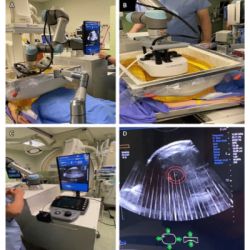Following recent advances in research backed by the National Institute for Health and Care Research (NIHR), UK government endorsed the use of digital pathology to analyze cancer screening samples at speed.
Revolutionizing Cancer Screening: Digital Pathology's Crucial Role
This development heralds a significant advancement in cancer screening, particularly for bowel, breast, lung, and cervical cancers. The integration of digital pathology, spearheaded by studies conducted at University Hospitals Coventry and Warwickshire (UHCW) NHS Trust and The University of Warwick’s Clinical Trials Unit, promises swifter reporting of samples, thereby enhancing the delivery of top-tier healthcare.
Histopathology, the microscopic examination of cells and tissues, is pivotal in detecting various diseases, with early cancer detection being paramount for improved patient outcomes.
Pathology Goes Digital: Transforming Cancer Diagnosis in the UK
Digital pathology employs automated slide scanners to digitize the histopathology process. Results are analyzed on computer workstations rather than traditional microscopes, enabling pathologists to review samples remotely, reducing the need for physical presence in laboratories. This digitization facilitates sample sharing, minimizing the risk of sample loss or damage. Moreover, this new process sets the stage for leveraging computer algorithms to enhance pathologists' performance in the future.
Following a thorough consultation by the UK National Screening Committee, the Government has granted approval for the adoption of digital pathology in analyzing cancer screening samples.
Collaborative Breakthrough: Advancing Cancer Screening with Digital Pathology
The study, funded by the NIHR Health Technology Assessment Programme and supported by the University of Warwick’s Clinical Trials Unit, involved six NHS hospitals. The objective was to demonstrate the equivalence between pathologists' reporting using digital pathology and the current standard of light microscopy. Sixteen pathologists across four specialties participated in the study, generating a total of 16,192 reports from 2024 samples.
Lead Researcher and Consultant Pathologist, Professor David Snead, from UHCW and The University of Warwick, expressed delight at this milestone achievement. He credited the collaborative effort of pathologists, research fellows, statisticians, and laboratory technicians for the success of the study. Professor Snead also acknowledged the technical support from 3DHISTECH and Philips, essential in facilitating the transition to digital pathology.
Professor Janet Dunn, lead for the Warwick Clinical Trials Unit, emphasized the significance of the government's recognition of this research and its approval for digital pathology use in screening programs.
Source: University of Warwick























